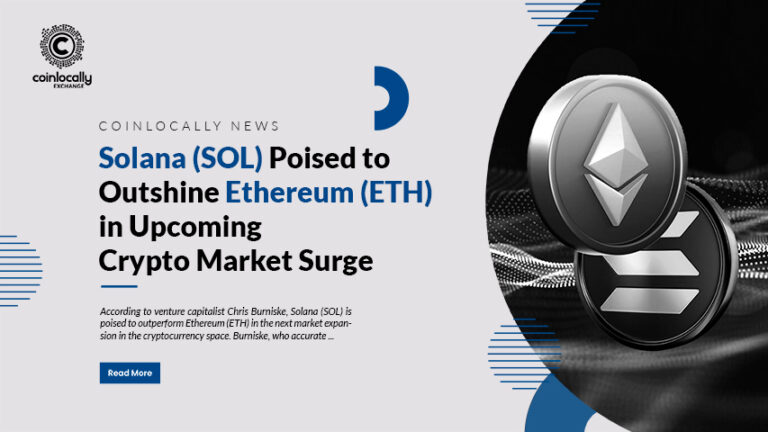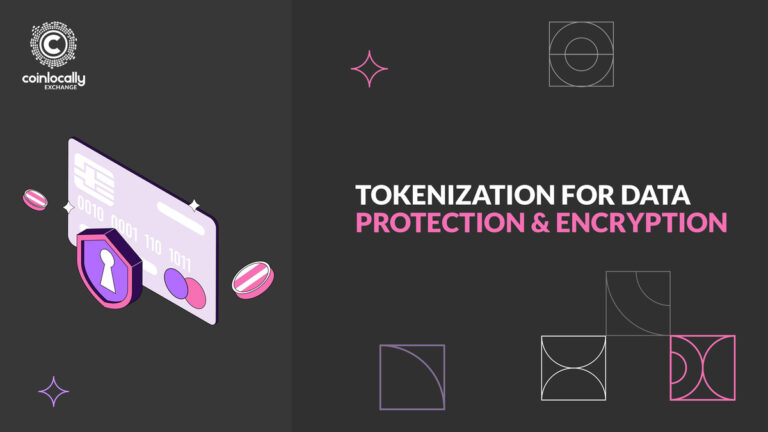Tokenization not only increases the security of sensitive data but also reduces the scope of compliance and associated costs. Tokenization’s versatility enables businesses to design customized Tokenization solutions for secure data management to help them match their data utility needs with data security concerns. This blog looks deeper into data tokenization and how it works. We’ll also look at some typical data tokenization use cases and how they differ from encryption. Quick Getaway: Looking for a platform with the most secure cryptocurrency trading platform? Signup with Coinlocally and enjoy the best Cryptocurrency trading strategies. Table of Contents • What Is Data Tokenization? • The Importance of Tokenization for Enhanced Data Security • What is Detokenization? • Does Tokenization Mask Data? • When Should I Use Data Tokenization? Top Tokenization Use Cases PCI DSS Compliance Third-Party Data Sharing Least Privilege Management Principle • What’s the Difference Between Tokenization and Encryption? • Applying Data Tokenization for Secure Analytics • Conclusion What Is Data Tokenization? Tokenization in the era of digital privacy, when data is one of the most valuable assets, is vital for businesses to ensure their data security. Data security and governance are frequently listed as the top problems for data executives, while data leaks and breaches have become more common. Organizations increasingly depend on data tokenization to resolve data privacy concerns and increase privacy preservation. This technique entails replacing sensitive data, such as a customer’s social security number or bank account number, with a random data string known as a token. You may also be interested in getting informed about Cryptocurrency Scams. Tokens have no inherent meaning and cannot be reverse-engineered to disclose their original data. Only the system that generated the token can use a well-known mechanism to obtain the original data it represents. The Importance of Tokenization for Enhanced Data Security According to a poll of data experts, 75% of organizations acquire and keep sensitive data that they currently have or plan for implementing data tokenization strategies. Tokenization is a method of securing data by replacing it with tokens that act as surrogates for the underlying information. For example, a customer’s 16-digit credit card number might be substituted with a random string of numbers, letters, or symbols. This tokenization procedure would make it impossible for a future attacker to exploit the customer’s credit card number, making online payments infinitely more secure. When businesses depend on tokenization, they may continue to use their data in the same way they always have while simultaneously being protected against the hazards associated with retaining sensitive data. This makes companies significantly less exposed in the case of a data breach and puts them in a far better position to comply with many ever-changing data compliance laws and regulations. Data tokenization assists organizations in striking the appropriate balance between realizing the total value of their data and keeping it secure. It is an effective technique for obtaining much-needed information in highly regulated areas such as healthcare and financial services without increasing the surface area for risk. Simultaneously, employing data tokenization can assist in earning customers’ trust by providing them with the piece of mind that their personally identifiable information (PII) will stay in the right hands. Coinlocally is one of the best cryptocurrency exchanges to buy, sell, and trade cryptocurrency securely. Coinlocally provides a seamless and reliable platform for all your cryptocurrency trading needs. Security is the top priority at Coinlocally Exchange. It employs robust security measures to safeguard your funds and personal information. The platform utilizes advanced encryption technology and implements stringent security protocols, ensuring your transactions and data remain confidential and protected from unauthorized access. Coinlocally offers a wide range of cryptocurrencies for trading, including Bitcoin, Ethereum, Litecoin, and many more. The user-friendly interface makes it easy for beginners and experienced traders to navigate the platform and execute trades easily. Whether you’re looking to buy your first cryptocurrency or diversify your portfolio, the platform provides the tools and resources you need to make informed trading. What is Detokenization? Swapping the token for the original data is known as detokenization. Only the original tokenization system is capable of detokenization. There is no other way to get the original number from the token alone. Tokens can be single-use (low-value) for one-time debit card transactions that do not need to be retained or persistent (high-value) for items like a repeat customer’s credit card number that needs to be stored in a database for repeating transactions. As previously stated, a token is a bit of data that serves as a substitute for another, more valued piece of information. Tokens have almost no value on their own. They are only helpful because they represent something important, such as a credit card main account number (PAN) or Social Security number (SSN). Does Tokenization Mask Data? Data masking desensitizes sensitive data by modifying it so it cannot be linked to the original data. Instead of wiping or replacing data with blank values, it replaces sensitive areas with data disguised to mimic the properties of the original data. Tokenization is a type of data masking that creates a masked version of the data while also storing the real data in a secure location. This results in masked data tokens that cannot be traced back to the original data but provide access to the original data when necessary. When Should I Use Data Tokenization? Top Tokenization Use Cases Data tokenization can help safeguard data in a variety of contexts, in addition to making processes like online payments more secure. These are some examples: 1. PCI DSS Compliance The Payment Card Industry Data Security Standard (PCI DSS) applies to any organization that takes, processes, stores, or transmits credit card information to ensure data security. To achieve this standard, data tokenization is utilized because tokens are often not subject to regulatory compliance and data tokenization requirements such as PCI DSS 3.2.1, provided there is adequate separation between the tokenization implementation and the applications that







